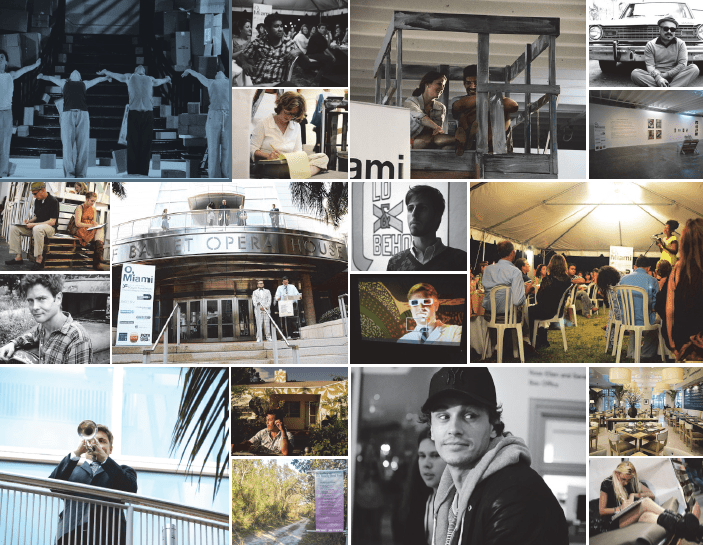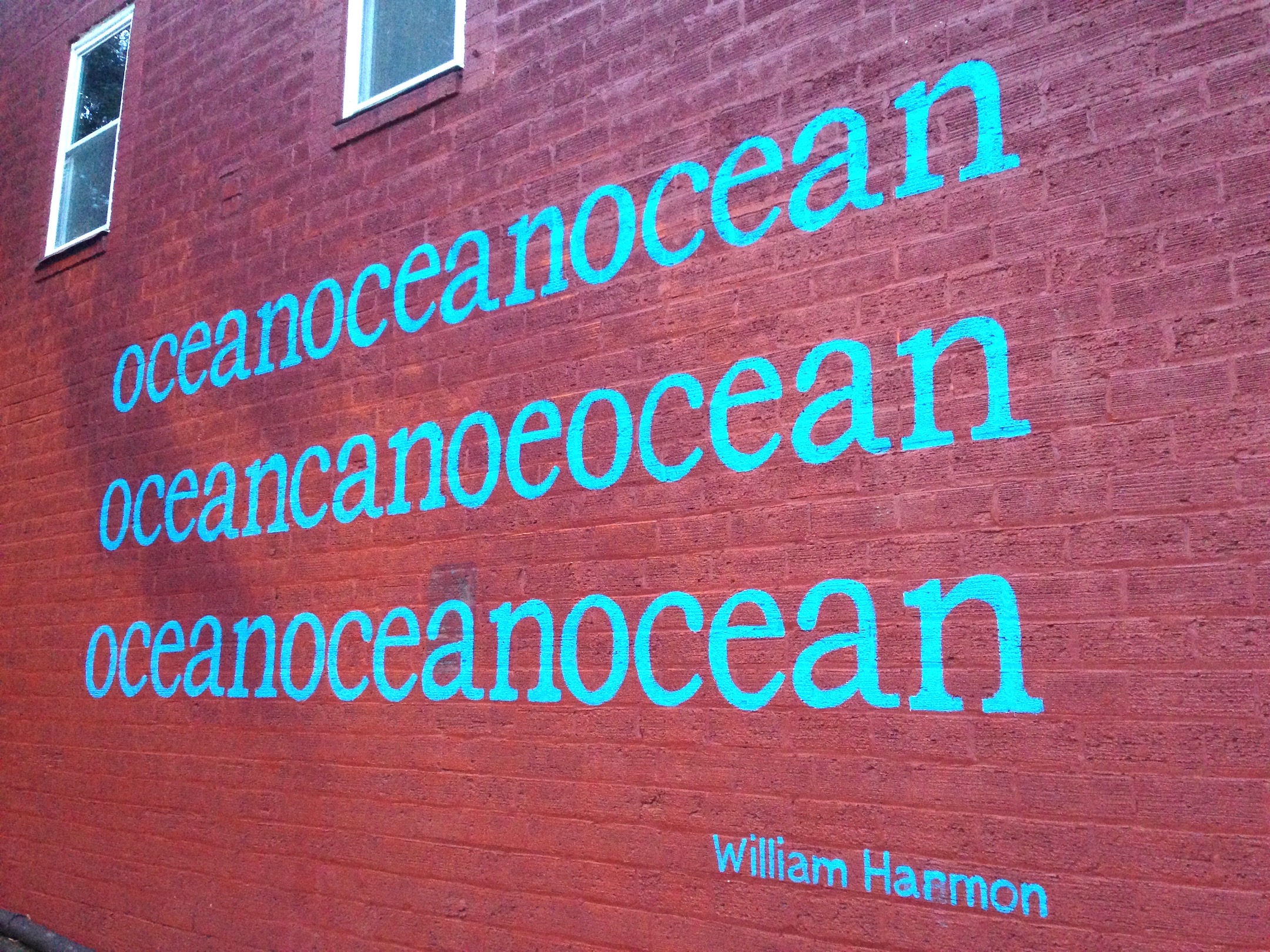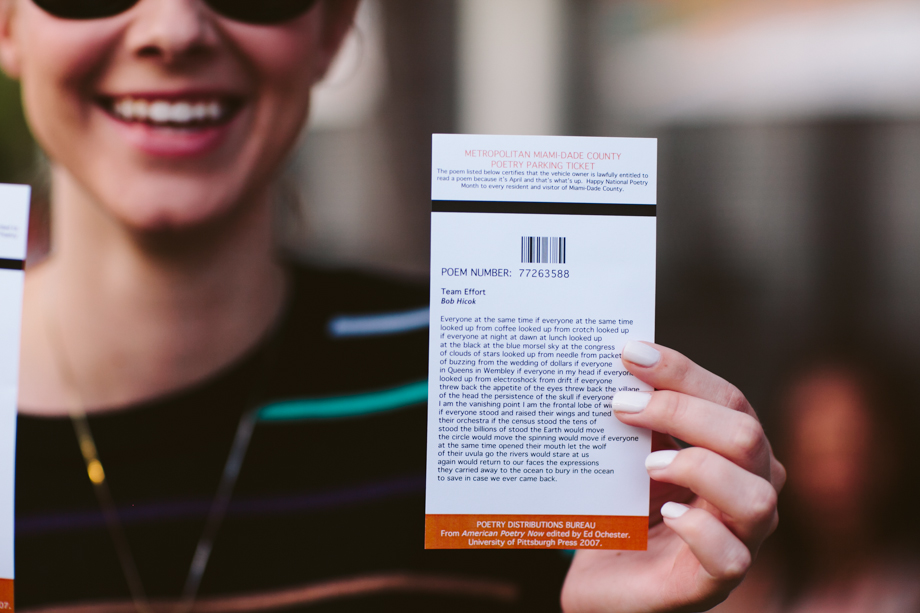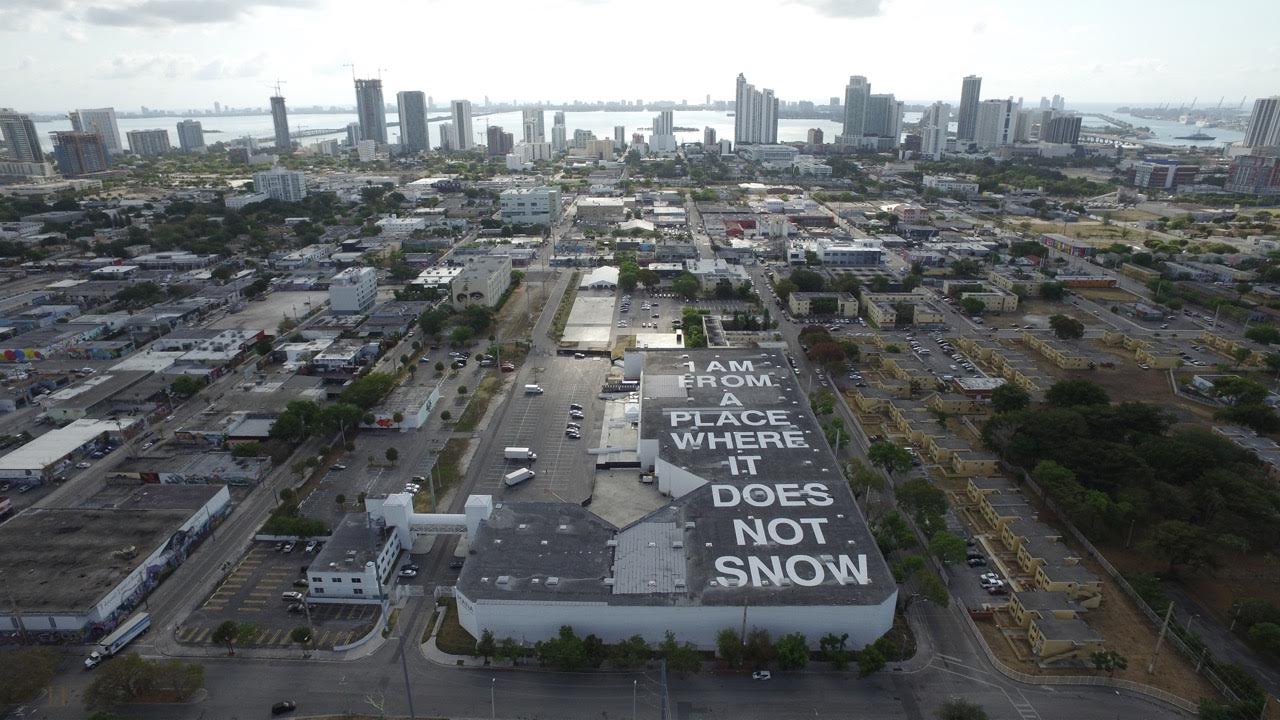
Taking poetry off the page and into the city: 5 lessons from Miami
The Knight-funded O, Miami Poetry Festival was recently named part of an historic coalition of 22 nonprofit organizations dedicated to promote the value poets bring to culture and communities. Here, foundation executive director P. Scott Cunningham writes about the festival’s approach to poetry by and for communities.
Every April, O, Miami Poetry Festival attempts to reach every single person in Miami with a poem. Rather than trying to get everyone to come to one place, we bring the festival to them, taking poetry off the page and into the city itself.
On average, we present 40 events and 23 projects per month, with programming occurring simultaneously in as many as 70 different ZIP codes. The name “O, Miami” actually says it all: Miami is our beloved and our inspiration. Poetry is merely the vehicle for that emotion.
So the name “Miami” is not just branding for us. It’s an essential part of our mission, and it guides almost every single artistic decision we make.
As we kick-off our sixth edition, we wanted to share a few approaches we hope others can use to co-produce artistic events in communities.
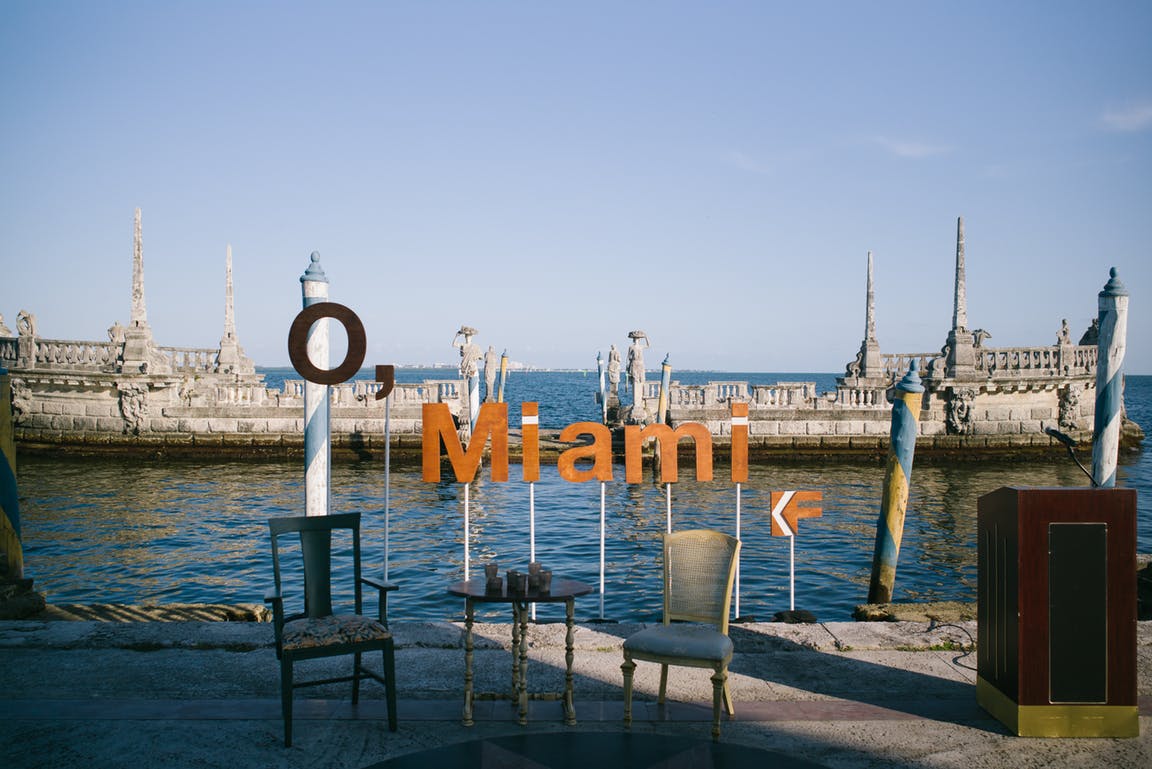
Using an open curation model has been key
From the beginning, we’ve accept proposals for events and projects from the community, but in the last couple of years, our goal has been to eventually produce a festival that’s completely curated by people who aren’t on staff.
Why? First, it’s more interesting. Second, it makes sense for our mission. One audience member increases the reach of the festival by one. But each co-creator expands the reach of the festival exponentially and brings a set of cultural reference points that we don’t have.
I don’t think there’s anything I despise more than when people say, “That city/neighborhood/state etc. has no culture,” or conversely, “This is where the cultural crowd hangs out.” No one owns culture. Or, put in a positive sense, every person, by virtue of language, heritage, community, etc. contains a rich and complex culture that is worthy of celebration. And if that’s true, how can we expect any one person or staff to have all the best ideas about art?
“Secret Sonnets” was proposed to us by a newly-blind 18-year old, Conor Grey, and his teacher, Emily Nostro. How would we have ever thought of this project on our own? And if we could have, what meaning would it have carried if we had produced it ourselves?
Our maxim: Community Art is great art
As Howard Herring, President of New World Symphony, likes to say, “Talent is random. Opportunity isn’t.” Creative people are everywhere, and moreover, their creativity is inextricably linked to the places they come from.
The goal of Poems to the Sky was to write poems on rooftops large enough so that people flying in and out of Miami International Airport could read them. We could have used Whitman or Plath or Bishop, or even a canonical contemporary poet like Kevin Young or Claudia Rankine.
We ultimately decided we wanted the poems to come from Miami itself. If the city was going to speak to people flying in and out, we wanted those voices to come from the Miami we love, the one that usually isn’t found on travel websites.
Connect to your city’s history
Miami’s greatest asset is its optimism. Perhaps because we’re a tourism and real estate town, we’re great at spinning positive narratives about our future. We’re not as good at examining our past.
Miami is actually a town rich with literary history, and as a literary nonprofit, we feel its our job to keep telling those stories in new ways.
One of those historical figures is Donald Justice, who was born and raised here and wrote eloquently about Miami, but who is more closely associated with Iowa, where he taught for many years.
When two young architecture students proposed rolling poems into the sand to us, we thought, “Here’s a perfect tribute to a forgotten Miami poet.”
Geographic diversity leads to artistic diversity
O, Miami has never had a brick-and-mortar home, so from the beginning we’ve been nomadic with our programming. Even still, we find ourselves returning to the spaces where we have great relationships and an established audience, most of which are in a cultural core near the center of the county. There’s nothing wrong with that, but if your goal is to expand an art form or reach new audiences, one way to escape your bubble is to make decisions based on geography.
Each year, we pick three neighborhoods that we didn’t have much impact in the year before, and we seek out partner organizations who already work there and understand the lay of the land. By naming and targeting these locations, we force ourselves out of our comfort zone. We meet new people, and we make art that isn’t like the art we might have made elsewhere.
Here’s an artist-driven project that took place in two different neighborhoods: Overtown and Little Haiti.
Participate in O, Miami right now
So, in the spirit of O, Miami, I’d like to enlist you as a co-creator of the festival.
We’re currently collaborating with 110 poets who are also residents of South Florida detention centers. O, Miami and another nonprofit, Exchange for Change, have teamed up with artist Julia Weist to co-produce a project with them called “View-Through.”
The goal is to alter the Google search terms for the phrase “Miami Inmates” so that the search bar’s predictive text displays the following poems, written by the students specifically for the project:
Miami inmates are sunbathing underwater
Miami inmates are what becomes of the chicken before I fry it up
Miami inmates are a device used to tell time
Miami inmates are light of the world, bone of men
Miami inmates are items of furniture for frightened people to lie down and rest upon
Miami inmates are believing in the unseen
Google these poems right now, and you can help us create a new audience for the work of these people who are, after all, our neighbors.
Scott Cunningham is the co-founder and executive director of O, Miami, a nonprofit organization that celebrates Miami through the lens of poetry, and the founder/executive editor of Jai-Alai Books, a regional publishing imprint. Follow him on Twitter @cunningpscott.
-
Arts / Article
-
Arts / Article
-
Recent Content
-
Artsarticle ·
-
Artsarticle ·
-
Artsarticle ·
